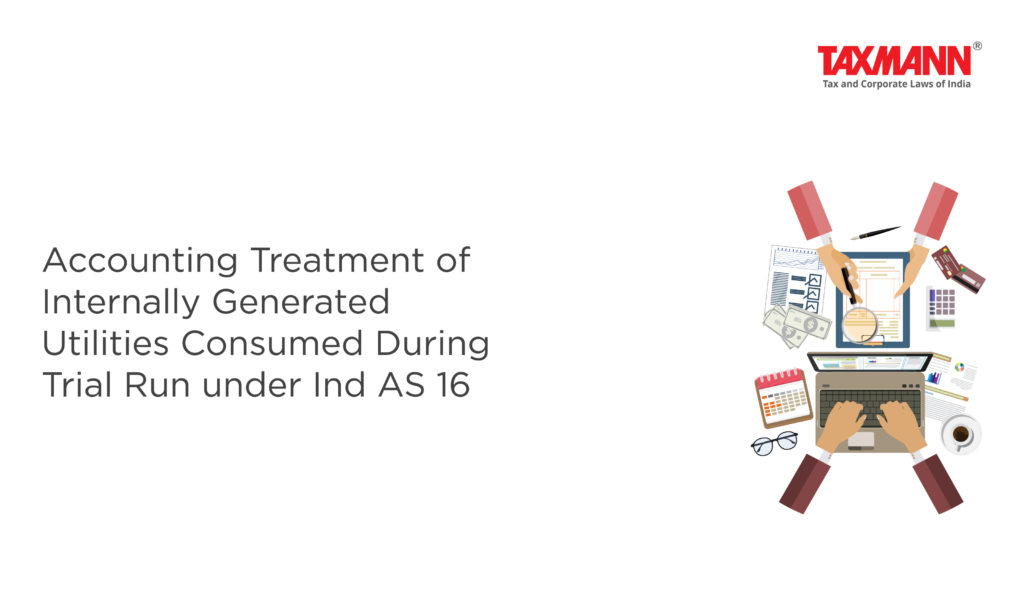Accounting Treatment of Internally Generated Utilities Consumed During Trial Run under Ind AS 16
- Blog|News|Account & Audit|
- 2 Min Read
- By Taxmann
- |
- Last Updated on 12 June, 2023

A company is in the business of manufacturing fertilizers and chemicals. The company needs power and steam as raw materials. To reduce cost the company has proposed a plan to install Gas Turbine Generators. During the trial run of the generators, some units of power and steam have been generated which has been captively consumed. As per management, the cost of commissioning shall be after the deduction of proceeds from the sale of power and steam generated during the trial to be accounted for as CWIP i.e. a part of it has been charged to P&L and other is capitalised as CWIP. The company wants to affirm its accounting and thus approached the EAC of ICAI for their input on the same.
The Expert Advisory Committee has noted that para 16 of Ind AS 16 states that the cost of an item of property, plant and equipment comprises costs directly attributable to bringing the asset to the location and condition necessary for it to be capable of operating in the manner intended by management. And directly attributable cost includes ‘costs of testing whether the asset is functioning properly’. Further, crediting the CWIP with the derived value of sale proceeds when there is no sale, but only an internal consumption will lead to the booking of internally generated income by the entity, which is prohibited under the Indian Accounting Standards framework.
On the basis of the above, the Expert Advisory Committee (EAC) is of the opinion that company is not correct in crediting CWIP with the value of utilities generated and consumed during the trial run phase and charging off the said amount to the Statement of Profit and Loss.
Click Here To Read The Full Story
Disclaimer: The content/information published on the website is only for general information of the user and shall not be construed as legal advice. While the Taxmann has exercised reasonable efforts to ensure the veracity of information/content published, Taxmann shall be under no liability in any manner whatsoever for incorrect information, if any.

Taxmann Publications has a dedicated in-house Research & Editorial Team. This team consists of a team of Chartered Accountants, Company Secretaries, and Lawyers. This team works under the guidance and supervision of editor-in-chief Mr Rakesh Bhargava.
The Research and Editorial Team is responsible for developing reliable and accurate content for the readers. The team follows the six-sigma approach to achieve the benchmark of zero error in its publications and research platforms. The team ensures that the following publication guidelines are thoroughly followed while developing the content:
- The statutory material is obtained only from the authorized and reliable sources
- All the latest developments in the judicial and legislative fields are covered
- Prepare the analytical write-ups on current, controversial, and important issues to help the readers to understand the concept and its implications
- Every content published by Taxmann is complete, accurate and lucid
- All evidence-based statements are supported with proper reference to Section, Circular No., Notification No. or citations
- The golden rules of grammar, style and consistency are thoroughly followed
- Font and size that’s easy to read and remain consistent across all imprint and digital publications are applied



 CA | CS | CMA
CA | CS | CMA
